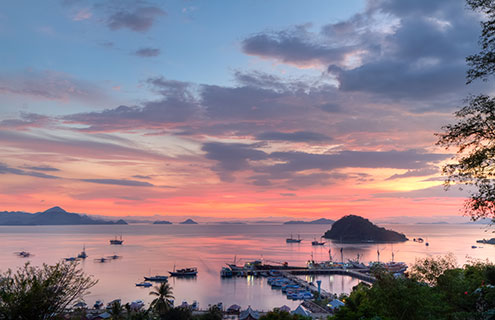Consultant
Consultant David Herratt tells CIT about the attraction associated with the little known Malaysian federal territory of Labuan
When did Labuan become an active captive domicile?
Labuan set up as an offshore centre in 1990. In 1996, the territory passed its own laws for regulating insurance activity and set up the Labuan Financial Services Authority (FSA).
In the 1990s, there wasn’t much of an emphasis on captives, but in the last five or six years there has been a strong focus on developing the location as a captive domicile.
Thirty-five companies are now currently residing in Labuan as registered captive insurance companies. There are also more than 100 other insurance and reinsurance entities registered there.
Labuan has become an offshore bridge between China and India, but in actual fact most of the island’s development has been around Southern Asia and focusing very much on larger corporates, conglomerates and international organisations in the ASEAN (Association of Southeast Asian Nations) countries.
Half of the 35 captives that currently reside in Labuan are essentially Malaysian organisations.
The island now offers potential companies a robust and internationally recognised regulatory regime and a facilitative business friendly legislation.
Labuan wants to be seen as business friendly and works with regulators to facilitate applications as easily as possible.
What sorts of captives currently domicile in Labuan and what makes it an attractive location to them?
The types of companies that are currently domiciled in Labuan are: Malaysian international firms; hospitality organisations; property organisations; energy-related organisations; and plantation conglomerates.
One of the mains reasons that captive insurers decide to set up in Labuan over other jurisdictions is privacy. I believe that Labaun offers a little bit more discretion—than many other offshore centres—for companies that don’t wish to broadcast their business to the world.
Labuan is also in the same time zone as Asia so it’s convenient for neighbouring destinations to do business. Labuan also has direct access to the Malaysian captive market because if you set up a captive in Labuan, although it is offshore, it is still a Malaysian company. And by being a Malaysian company, it can write third-party business.
Labuan also offers a competitive shariah-compliant legislation, a unique offering that makes it standalone in Asia in comparison to other captive centres.
What types of vehicles and risks do companies in Labuan look at?
All of the 35 captive insurance companies in Labuan are standalone captives. There is also legislation for protected cell companies (PCCs), but the process hasn’t progressed that much as of yet.
The types of risk that Labuan can cover are basically the insurance, reinsurance and captive risks. So it’s all classes including property, casualty, life and general business. The regulators in Labuan offer licences that are contingent upon the application being accepted, and the whole project being feasible.
What is the regulator like in Labuan?
The FSA in Labuan wants the territory’s offshore centre to work and in that respect it’s clearly tried to simplify applications, formalities and costs as much as it can.
Will Labuan will be able to rival more established Asian domiciles in the future?
Yes, I think that Labuan can. Singapore is obviously a captive centre as well and Hong Kong and Singapore certainly rival Labuan as captive centres, but I feel that Labuan empathises a lot more with the Asian way of doing business.
Interestingly, there are more than 7000 companies registered already in Labuan—they are essentially holding companies and some may just hold a property—but many of them will be major organisations that want to have their head office in Labuan for tax reasons.
What are the drawbacks of domiciling in Labuan?
I believe that the drawbacks to domiciling in Labuan are no different to those of any other offshore centres.
In Asia, many times, relationships come before the business. Firms are dealing with a similar culture of people and I think that these expectations are met by Labuan because it offers the culture, behaviour, style and tone of service that Asian companies like to receive.





